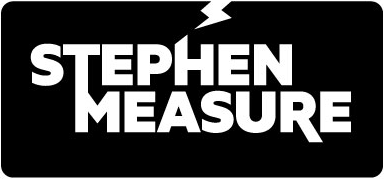Why the Comparison Fails
November 26, 2014
Picture yourself about to compete in a footrace. There you are, crouched at the starting line, awaiting the whistle, when suddenly your opponent smashes your kneecap with a baseball bat. Then, as you writhe on the ground in undeserved pain, he goes on to win the race and pretends it was his speed that gave him the victory rather than his cheap tactics.
That's how I feel whenever someone tries to win the debate about same-sex marriage by comparing the opposition to same-sex marriage with the opposition to interracial marriage. It's a cheap shot, like a baseball bat to the kneecap. Let me explain why the comparison fails.
Imagine that John and Mike have decided to be same-sex married. They approach a wedding planner and ask for her assistance, but she declines their business because she doesn't want to participate in a same-sex wedding. Okay, let's dig into her motivations. Why did she decline their business? Is it something against John? Is it something against Mike? There's an easy way to find out. Imagine that those same individuals, John and Mike, had instead both decided to marry women. Imagine that they each approached the wedding planner separately with their female fiance. Would the wedding planner decline the business of either couple? No, of course not. She has nothing against either John or Mike. It's not opposition to people that caused her to refuse to take part in a same-sex wedding; it's opposition to behavior. It's opposition to a choice she disagrees with—namely, the choice to legally lock oneself into a relationship she views as immoral.
Before we go on, ask yourself one final question: Had John and Mike both decided to marry women, would you expect the wedding planner to treat John and his finance any different than Mike and his fiance? Of course not. Once again, she has nothing against either John or Mike. Both of them are equal in her eyes. Her refusal to take part in their same-sex wedding has nothing to do with them; it has to do with their choice. Opposition to same-sex marriage is not opposition to people; it's opposition to behavior.
Now, let's consider opposition to interracial marriage. Imagine that Leroy, a black man, and Mary, a white woman, have decided to be married. They approach a wedding planner, but that wedding planner declines their business because she doesn't want to participate in an interracial wedding. How does this differ from opposition to same-sex marriage? It's easy to see if you think through the situation. Imagine a similar alternative as before. Now, Leroy has chosen to marry a black woman and Mary has chosen to marry a white man. Both couples approach the same wedding planner who opposes interracial marriage. Is she likely to accept the business of both couples? Maybe. But ask yourself this: Would she treat both couples equally? Would a person who thinks blacks should not marry whites treat a black couple as well as she treats a white couple? I don't think so. Her opposition to interracial marriage is not about a choice; it's about them; it's about the color of Leroy and Mary's skin, something they can do nothing about. John and Mike have a choice. Yes, they feel same-sex attraction, just like we all feel many inclinations we can and should reject, and they can reject this one as well. But we cannot reject our skin color. It just is. That's the difference. Opposition to interracial marriage is rooted in opposition to people. Opposition to same-sex marriage, on the other hand, is rooted in opposition to a choice, in opposition to a behavior that many view as immoral.
And that's why the comparison fails.


